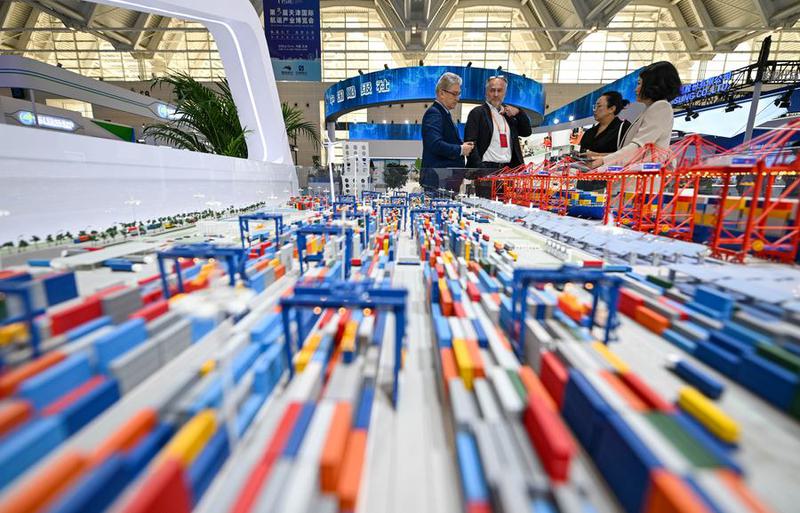FDI showing no signs of slowing results
Such investment in e-commerce services surged 146% in Jan-May


Fueled by diverse application scenarios and strong innovation momentum, China has emerged as a prime destination for foreign investment, underpinned by broad strategic advantages amid profound shifts in the global economic landscape, said heads of foreign corporations.
Highlighting that the country has become a key hub for business model experimentation and technological innovation, they said China will remain a priority market for future foreign investment, particularly in areas such as electrification, digital transformation, green development and trade-in services, as many of such companies actively expand their presence abroad.
According to a report on foreign firms released by the Beijing-based Chinese Academy of International Trade and Economic Cooperation in mid-June, these enterprises continue to increase their investment in China's high-tech manufacturing sector this year.
The strategic layout of future cutting-edge industries by foreign businesses in China not only brings capital and technology, but also promotes China's industrial leap through industrial chain reshaping, international resource coordination and localized innovation, according to the report.
One such company is French industrial conglomerate Schneider Electric. The group, backed by its China AI (artificial intelligence) innovation labs, has been actively promoting the integration of AI technologies with application scenarios across industries such as manufacturing, building, infrastructure and data centers, aiming to accelerate digital transformation and the shift toward low-carbon growth.
Yin Zheng, executive vice-president, China and East Asia operations at Schneider Electric, said that as a key driver of global economic growth, China boasts a vast market and a solid industrial foundation.
The development of new quality productive forces is speeding up the creation of innovation-driven digital and green productivity, offering broader development opportunities for multinational corporations in the field of high-tech sectors, said Yin.
"For the next step, we will continue to build digital, green and global ecosystems to empower small and medium-sized enterprises to innovate and help Chinese companies expand into international markets," he added.
Similar views were shared by Nathan Stoner, chairman for China at Cummins Inc, a United States-based engine manufacturer.
"We are currently undergoing adjustments and transformations in our business, not just in components, but also in our operations in China. Our goal is not only to serve the Chinese market, but also to support Chinese automakers in their global expansion," said Stoner.
For instance, some Chinese automakers are expanding in Southeast Asia, Europe and other regions, and Cummins is keen to assist them in developing their overseas business, he added.
Cummins will launch next-generation products, including electric motors, electronic controls, e-drive systems and integrated controllers — as well as power electronics — in the country next year.
The actual use of foreign direct investment in China's high-tech industries reached 109.04 billion yuan ($15.22 billion) in the first five months of 2025, with FDI rising 146 percent in the e-commerce services sector, 74.9 percent in the aerospace equipment manufacturing sector and 59.2 percent in the chemical pharmaceuticals manufacturing sector, year-on-year, said the Ministry of Commerce.
Investment from the United Kingdom, the Republic of Korea and Germany increased 60.9 percent, 10.3 percent and 7.1 percent, year-on-year, respectively, during the five-month period.
In a shift from industrial investment to people-to-people exchanges, Air New Zealand, Air China and Tourism New Zealand announced a partnership in late June aimed at strengthening travel from China to the island country.
Air New Zealand will invest more than $700,000 in marketing through this partnership in China over the next 12 months.
"This is an opportunity to further stimulate travel demand to encourage growth in inbound tourism from China to New Zealand," said Greg Foran, CEO of the Auckland-based airline, adding that the carrier expects to see a 33 percent increase on a yearly basis in premium seats on the Shanghai-Auckland route from October.




































